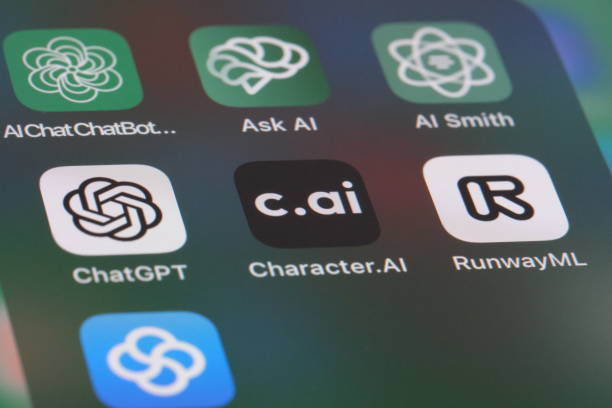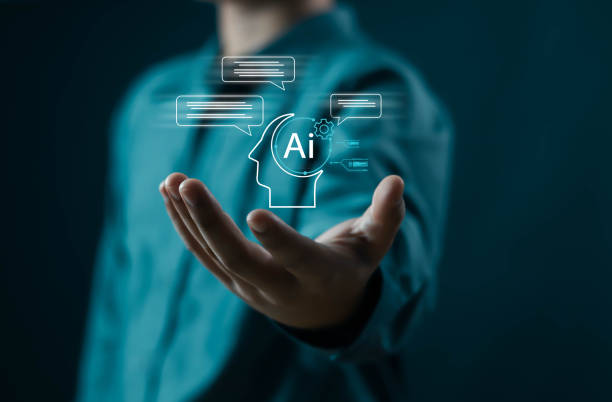- +91-8923999074
- sales@efoxtechnologies.com
Blogs
- Home
- Blogs
Is AI Really Taking Human Jobs? The Truth Behind Automation and Employment
03 Apr, 2025 Inventive Team
Artificial intelligence (AI) has been advancing rapidly, reshaping industries and raising concerns about job security. From self-checkout machines to AI-driven chatbots and robotic assembly lines, automation is taking over repetitive and predictable tasks. This raises an important question: Is AI truly replacing human workers, or is it simply changing the nature of work?
In this blog, well examine the impact of AI on employment, which jobs are most at risk, which roles are being created, and how workers can future-proof their careers in the age of AI.
How AI is Impacting Jobs

AI and automation are transforming industries by increasing efficiency, reducing costs, and minimizing human error. However, this shift is affecting the job market in multiple ways:
1. Jobs at Risk of Automation
Certain occupations that involve repetitive, rule-based tasks are more susceptible to automation. These include:
Manufacturing and Assembly Line Jobs – Industrial robots are replacing human workers in factories.
Customer Service Roles – AI chatbots and virtual assistants are handling customer inquiries.
Data Entry and Administrative Work – AI-driven software can process and organize data more efficiently than humans.
Retail and Cashiering – Self-checkout systems and automated kiosks are reducing the need for human cashiers.
Transportation and Delivery – Autonomous vehicles and drones are beginning to replace human drivers.
2. Jobs Being Created by AI
While AI is replacing some jobs, it is also creating new roles that didnt exist before. These include:
AI and Machine Learning Engineers – Professionals who develop AI algorithms and models.
Data Analysts and Scientists – Experts who analyze vast amounts of data to drive business decisions.
Cybersecurity Specialists – AI-driven security solutions require human oversight and development.
AI Ethics Consultants – Specialists ensuring AI systems are ethical, unbiased, and aligned with human values.
Robotics Technicians and AI Maintenance Specialists – Workers who install, maintain, and repair AI-powered machines.
3. AI Augmenting Human Work
Instead of outright replacing jobs, AI is also acting as an assistant, augmenting human capabilities. For instance:
Doctors and Healthcare Workers – AI helps in diagnosing diseases, but human doctors still make final decisions.
Teachers and Educators – AI-powered learning platforms personalize education, but human teachers provide mentorship and guidance.
Marketers and Content Creators – AI tools assist in content generation, but creativity remains a human trait.
The Future of Employment in the Age of AI
While AI is undoubtedly changing the job market, the key lies in adaptability. Workers must focus on upskilling and acquiring new skills to stay relevant. Here are a few ways to future-proof careers:
1. Upskilling and Reskilling
Learning new skills in technology, critical thinking, and emotional intelligence can help workers transition into AI-related fields. Online courses, certifications, and workshops are valuable tools for learning.
2. Focusing on Human-Centric Skills
Soft skills like creativity, empathy, leadership, and problem-solving are difficult for AI to replicate. Jobs that require these qualities are less likely to be automated.
3. Embracing AI as a Tool, Not a Threat
Instead of fearing AI, workers should learn how to use AI-driven tools to enhance their productivity and efficiency.
Conclusion: Is AI a Job Killer or a Job Creator?

AI is not necessarily eliminating jobs but transforming them. While some roles will disappear, new opportunities will emerge. History has shown that technological advancements often create more jobs than they destroy. The key is adaptability—workers who embrace lifelong learning and innovation will thrive in the AI-driven economy.
Instead of fearing AI, we must prepare for the future, embrace change, and leverage AI to enhance human potential. The future of work is not about AI versus humans but AI and humans working together.